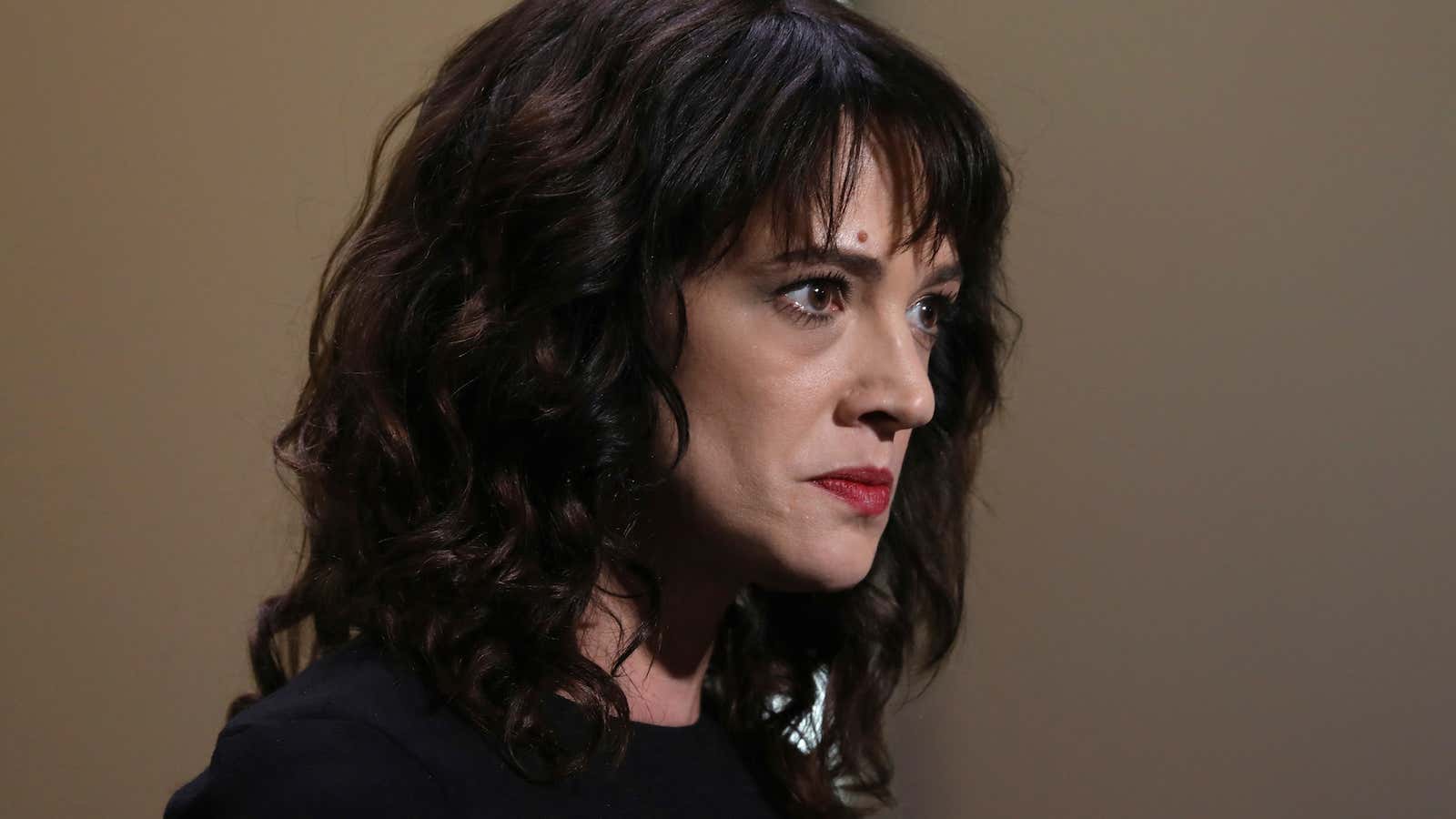The sexual assault Asia Argento is accused of committing is horrible. It’s also heartbreaking to see one of the most outspoken voices of the #MeToo Movement accused of abuse herself. The hypocrisy is obvious—and painful.
The New York Times reports that the Italian actress and director, a vocal accuser of Harvey Weinstein, paid $380,000 to Jimmy Bennett, a musician and former child actor, who claimed Argento sexually assaulted him in a California hotel room when he was 17, and she was 37. The age of consent in California is 18. Argento had played Bennett’s mother in the 2004 film The Heart is Deceitful Above All Things.
Does Argento’s settling a claim of sexual-assault against her disparage the global movement to dismantle sexual harassment?
Undoubtedly, critics will say yes.
Ignore them.
Sexual harassment is not about gender
It’s about the abuse of power. In our deeply patriarchal society, far more often than not, men hold and exert such power upon women. Reports find that 81% of women, as compared to 43% of men, experience sexual harassment in their lifetimes. When we start drawing lines based on gender—arguing that only some assaults “count,” or that if a woman assaults a man, the whole movement is negated—all victims lose, because all victims become disbelieved.
The harsh reality is that no one—not women, men, or feminists of any gender—is immune to the toxic, omnipresent, and deeply sexist power dynamics governing much of the world. We are socialized to believe that with power comes not responsibility, but entitlement. And, intoxicated by this lie, many of us err toward manipulation, and sometimes abuse.
Sexual harassment is not something that “just happens.” The misconduct Argento is accused of is no “better” or “worse” than the long list of cases involving male predators. When we buy the delusion that only “really bad people” manipulate their power toward sexual misconduct, we paralyze progress. And we blind ourselves to a system whose toxicity lives within all of us—not any individual person, company, gender, or industry.
Listen to the leader
Tarana Burke, the civil-rights activist who created the Me Too Movement a decade before the hashtag went viral last year, challenged her followers on Twitter this morning (Aug. 20) to realize that the #MeToo Movement is fighting for justice on behalf of all victims, regardless of their gender identities.
There is no more important message, or voice, worth listening to right now than Burke’s. As she explained in a speech last October, just days after the Times first bombshell report on Weinstein, the #MeToo Movement exists “to radicalize the notion of mass healing.”
“As a community, we create a lot of space for fighting and pushing back, but not enough for connecting and healing,” she said.
As journalist Lisa Ryan perfectly articulates in The Cut, “it’s shattering to see an advocate be accused of the very thing she was fighting against. If anything, though, this is an opportunity for the movement to show its true priorities: amplifying the voices of survivors, no matter how discomfiting their claims might be, and working to create a world in which no person is too powerful or deemed too unimpeachable for accountability.”
Progress demands we open our arms, and minds, to connecting and healing—with all victims, all survivors, and all genders.
